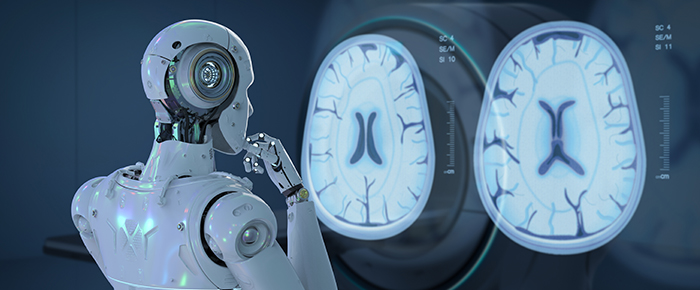Empowering Physicians: Navigating Healthcare with AI Diagnostic Tools
In today's rapidly evolving healthcare landscape, technology plays an increasingly vital role in enhancing patient care and clinical outcomes. Artificial Intelligence (AI) diagnostic tools have emerged as a groundbreaking innovation that is revolutionizing the way physicians diagnose and treat various medical conditions. By leveraging the power of AI, physicians can access real-time insights, make more accurate diagnoses, and personalize treatment plans tailored to individual patients. This article explores how AI diagnostic tools are empowering physicians to navigate the complex healthcare system more efficiently and effectively.
The Impact of AI Diagnostic Tools on Healthcare
Improved Diagnostic Accuracy
- AI diagnostic tools can analyze vast amounts of patient data and medical literature to identify patterns and trends that may not be immediately apparent to human physicians.
- By comparing a patient's symptoms and medical history with a vast database of cases, AI can offer more accurate and timely diagnoses, reducing the risk of misdiagnosis and improving patient outcomes.
- Studies have shown that AI algorithms can outperform human physicians in certain diagnostic tasks, especially in specialties such as radiology and pathology.
Enhanced Treatment Personalization
- AI diagnostic tools can help physicians develop personalized treatment plans based on a patient's unique genetic makeup, lifestyle factors, and medical history.
- By analyzing data from electronic health records, imaging tests, and genetic screenings, AI can recommend the most effective treatments and interventions for each individual patient.
- This personalized approach not only improves treatment outcomes but also reduces the risk of adverse reactions and unnecessary medical interventions.
Challenges and Opportunities for Physician Adoption
Challenges
- Resistance to Change: Some physicians may be hesitant to adopt AI diagnostic tools due to concerns about job security, loss of autonomy, or unfamiliarity with new technology.
- Data Privacy Concerns: The use of AI in healthcare raises important ethical and privacy concerns related to data security, patient consent, and the potential misuse of sensitive information.
- Integration with Existing Systems: Integrating AI tools into existing healthcare systems can be complex and time-consuming, requiring significant investment in infrastructure and training.
Opportunities
- Improved Efficiency: AI diagnostic tools can help physicians streamline their workflow, reduce administrative burdens, and focus more on patient care and clinical decision-making.
- Continuing Medical Education: AI can be used as a powerful tool for continuous learning and professional development, providing physicians with real-time access to the latest medical research and treatment guidelines.
- Collaborative Care: AI can facilitate collaboration and information-sharing among healthcare providers, enabling more coordinated and comprehensive care for patients across different specialties and settings.
Conclusion
AI diagnostic tools have the potential to transform the practice of medicine and improve patient outcomes by empowering physicians with advanced tools and insights to make more accurate diagnoses and personalized treatment decisions. While there are challenges to overcome, the opportunities for physician adoption of AI in healthcare are vast. By embracing these technologies and integrating them into their practice, physicians can navigate the complex healthcare system more efficiently and effectively, ultimately leading to better outcomes for patients.
